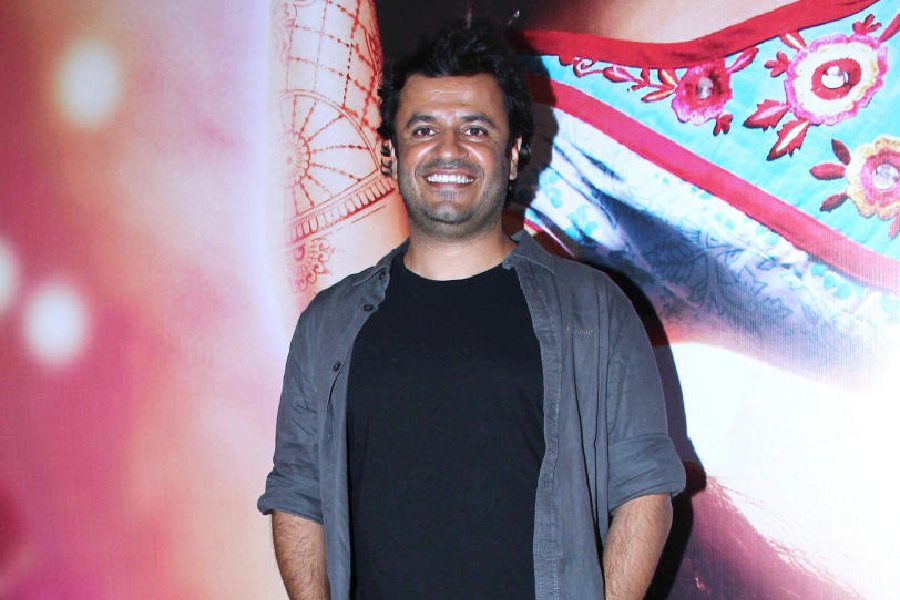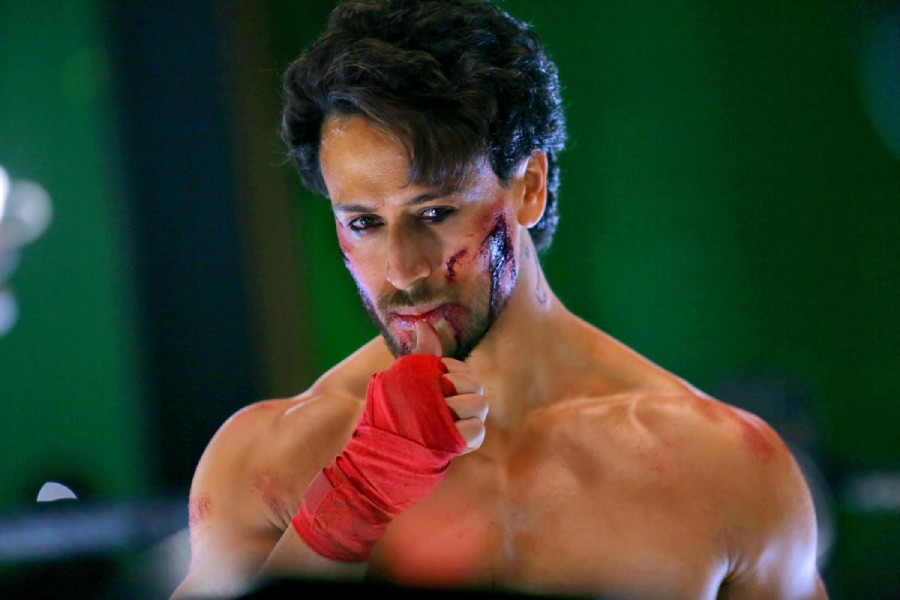This Friday, Ganapath: A Hero is Born, brings back Tiger Shroff and Kriti Sanon nine years after they debuted together in Heropanti. The dystopian action thriller, which also stars Amitabh Bachchan, sees Tiger’s Guddu rise to become Ganapath, a messiah of the masses in a world of the future ravaged by calamity and chaos.
Ganapath, the first instalment in what is planned as an ambitious franchise, is directed by Vikas Bahl, the man behind films like Queen and Super 30. A chat with Vikas on Ganapath and its world. t2 is a media partner of Ganapath.
Ganapath is looking very different from the usual. I am sure you have heard that many times by now....
Everybody is expecting something different. That’s a lot of pressure on us now to ensure that what they are expecting, we live up to that.
Also, this is not a genre — dystopian action thriller — that Bollywood has done very much, or even done successfully....
I genuinely think that people love to go and experience new things in a theatre. With Ganapath, they are expecting us to delight them and surprise them. At the same time, emotionally connecting with the audience is very important. If the audience doesn’t connect with the characters and their emotions, then no amount of scale and ambition helps. It has to be a very good combination of intense emotions and a larger-than-life scale and I hope we have achieved that in Ganapath. I hope viewers enjoy the journey of the characters and relate to the characters and the story. When that happens, the VFX and the ambition and the scale become the icing on the cake.
What we are attempting in this film is something delightful and unusual. The audience will enjoy the journey of the characters and the music. At the end of the day, it’s a fun film, it’s a fun ride. This film is Part One of what we hope is a character (Guddu aka Ganapath, played by Tiger Shroff) whose journey is something that hopefully people will want to see in the years to come.
Hollywood has a lot of comic-book bases on which they base their films and characters. It’s already in the system, it’s already a part of the pop-culture DNA there. We don’t have that over here. We don’t really have these characters. So we are trying to create characters and the world around them through cinema, and hopefully, we can travel on this journey with them.

Vikas Bahl
What made you want to make this film?
I started writing a small film, but as I kept writing, it just kept getting bigger and bigger. The film is based in the future, it takes place after a big calamity changes the world. History has shown that whenever the planet faces a crisis and overcomes it, it results in rise and progress. Ganapath is based in a world like that. This is a journey of a character who is caught in a situation like this and he eventually evolves into the person he was always meant to be.
I love this world because I have grown up on this kind of cinema. We have all grown up on Mr (Amitabh) Bachchan’s cinema. And for me, nothing competes with that. Queen (which Vikas directed), could have been told in a very sad, moral way because it’s actually a really sad story. But I love telling my stories by flipping them upside down and giving them a different treatment. The attempt with Ganapath has been the same.
What were your biggest takeaways from the process of making Ganapath?
This is a very VFX-heavy film and I had never done something like this before. So I had to constantly learn and relearn and learn. We were running and falling, running and falling trying to understand this world of VFX. I would sit for hours and watch making-of videos by other directors who have done some great work in VFX, whether it’s in India or internationally.
The biggest learning was the journey itself. Our benchmark was pretty high. Hollywood films have set such high standards in VFX and their budgets are humongous. Our budgets are minuscule compared to that. But whether we like it or not, they are our competition now. The audience is paying the same price for both kinds of films.
The biggest challenge over here is to attempt that standard and quality of shot-taking with much lesser budgets. And yet impress the audience and get them on your side. And hopefully, if these films do well, our budgets will improve, our audience will become bigger and we will be able to do even bigger and better stuff. So we can eventually compete with Hollywood’s capabilities and their budgets.
All our VFX work for Ganapath has happened in the lanes and bylanes of Andheri (in Mumbai). Unlike many other films in India, we haven’t hired any Hollywood technicians. This is a completely homegrown film. We have all worked day and night to put something out there that we hope everybody enjoys.
The comparisons with, say, an Avengers isn’t really fair, right? We have taken baby steps with Brahmastra, but Adipurush set us back badly....
Even if I think it is unfair, it doesn’t really matter. That’s because the audience is spending the same amount of money to watch my film and a Hollywood film in the same genre. They are watching it with all their senses there. I cannot expect them to suddenly reduce their senses just because they are watching a Hindi film. I think we have to get smarter, sharper and work harder. In this film, I didn’t have any window or margin for error while doing the VFX. I did not exceed what we needed even by 10 per cent because every frame cost too much. So we just have to get sharper and better. India is a pro at that. That’s how we got to the moon. Restrictions are there but we have to find a way around them.
The good thing is that in our films, more often than not, we have stories and characters that connect. And with our actors and actresses and our storyline and our drama and emotion, we have an advantage over here. In addition, if we can do VFX that justifies the story, I think we have got a good battle ahead.
But we have to work very, very hard for it. Our budgets are not going to change drastically overnight. When they make something in Hollywood, it goes to hundreds of countries. Here, with our films, we predominantly cater to seven-eight Indian states. It will take time and it will be nice if the audience is kind to us, but I think we cannot assume that as leverage. We have to keep working hard to get it right. This is my first attempt and I am sure I will get better in the next one.
Tiger Shroff seems a perfect fit for the title role. What did he bring to the part that was uniquely him?
Tiger was my first choice because I find him a very interesting combination of being this amazing action hero but he also has this innocence about him. He is this gentle, sweet boy who hardly speaks, who is so kind and gentle with everybody, and at the same time, he is this amazing action hero!
And what was it like directing Mr Bachchan?
His aura just fills the room, it overpowers everything. It’s unbelievable! I would pinch myself that I was actually working with him! Every day he would come to the set after thoroughly learning his lines and rehearsing many times. And every scene would be just perfect. He’s still a child on set, always raring to go. Just having him around makes you want to work harder.
You said that you are looking at this character as having a lot more to him in subsequent films and stories, perhaps creating a Ganapath universe of sorts. Is that certain or will the box-office reception to the first film determine your future course of action?
Well, the fate of a film at the box office always decides everything. Having said that, we are prepped and, hopefully, we will do the next film.











